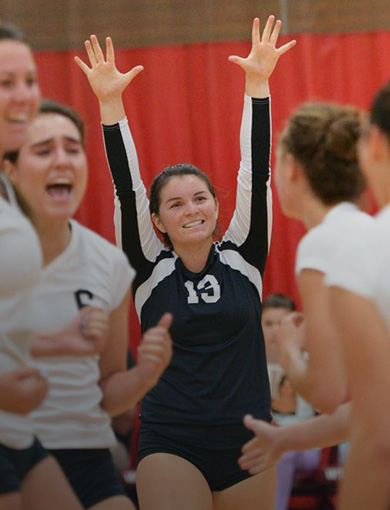ACL Injuries
The anterior cruciate ligament (ACL) is essential to the support and stability of the knee joint. Injuries to the ACL are common and often send professional athletes to the sidelines. Anyone can who plays high intensity sports like basketball, soccer, football, tennis and skiing are at risk.
ACL tears are much more common among female athletes. It is surmised that gender-related differences in strength and conditioning, hormones and differences alignment of the pelvis and lower legs combine to increase the risk of a tear.
What causes an ACL Injury?
70% of ACL injuries result without direct contact. Rather, an ACL injury can result from a sudden stop and change in direction involved in cutting, pivoting, sidestepping, and awkward landing from a jump.
What is an ACL tear?
Most tears are complete and severe. Athletes can recover from a partial tear with rehabilitation. With a complete tear it may be impossible to perform sports requiring quick changes of direction or walking on uneven surfaces due to instability. If there are repeated episodes of instability this can further damage the knee and can cause post-traumatic arthritis.
What are the symptoms of an ACL tear?
- Pain and swelling within 24 hours of the injury, usually within the first hour.
- A popping sound when injured, with inability to continue the activity
- Knee buckling. If ignored the pain and swelling may resolve but repeated buckling damages the knee cartilage which can lead to post traumatic arthritis.
- Loss of range of motion
- Instability
- Tenderness at the joint
How is a torn ACL diagnosed?
During your consultation with your Orthopedic Associates of Northern California specialist, you will describe how you injured your knee, your symptoms and medical history, and your Orthopedic Associates of Northern California orthopedist will examine your knee.
The physical examination will check all the knee structures and compare your range of motion of uninjured knee with the injured knee. Most ACL tears can be diagnosed with this orthopedic examination.
About 50% of ACL injuries occur along with damage to other knee structures, particularly damage to the meniscus, articular cartilage and other ligaments. You may receive x-rays and imaging studies to confirm the diagnosis and identify any other concurrent injuries, including broken bones, and damaged cartilage.
Complications of an ACL tear include damage caused by instability, difficulty moving the knee normally, persistent knee pain and the risk of developing post traumatic knee osteoarthritis. Chronic instability can cause meniscus damage.
What can my doctor do for me?
Treatment is determined by the extent of the damage to the ACL, any concurrent injuries, and your needs. Initial treatment includes rest, ice, elevation and anti-inflammatory medications to decrease pain and swelling.
Athletes who desire to safely return to their sports, are most likely to seek surgery. Older, less active athletes may choose nonsurgical treatment.
Orthopedic Associates of Northern California has offices in Chico and Paradise, CA. We look forward to providing you with compassionate, patient-centered care based on your needs. The team at Orthopedic Associates is deeply committed to your health and well-being. Call to schedule a consultation to get the correct diagnosis and learn about all your treatment options.





